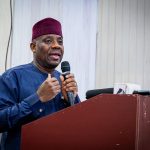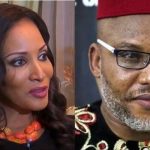The price of petroleum in Nigeria remains high, with the Nigerian National Petroleum Company Limited (NNPCL) agreeing to sell Premium Motor Spirit (petrol) to members of the Independent Petroleum Marketers Association of Nigeria (IPMAN) at N995 per litre, according to reports.
This disclosure was made by the National Vice President of IPMAN, Hammed Fashola, who credited the Department of State Services (DSS) for facilitating the agreement.
“We really appreciate their intervention. They are doing their job. Anywhere they have seen that there may be a crisis, it is their duty to intervene. And their intervention brokered peace and understanding between the parties, and everybody agreed to work together,” Fashola said.
He added, “For now, tentatively, I think they are offering us N995 per litre.”
However, Fashola cautioned that despite the N995 per litre offer, transportation costs may push the price higher in certain areas.
“Depends on the location. I think with the N995, there will be a little reduction. Don’t forget that if you transport a product from Lagos to a far distance, you will pay for transportation and other charges,” he explained.
He further stated that IPMAN was working to establish a uniform pricing system. “When we sit down and look at the price analysis offered to us, and factor in all our expenses, we want to have a uniform price as much as possible.”
Fashola noted that marketers had previously faced challenges due to price disparities but expressed optimism that the new arrangement would help resolve the issue, particularly in relation to supply from the Dangote refinery.
“The price disparity has been a disadvantage between us and the NNPC Retail and major marketers. So, we are trying to close that gap so we can come back fully into business. The lack of direct supply has been our problem, and now that we are solving that, I don’t think that disparity will remain,” he said.
He also linked the queues at filling stations to the price difference, rather than supply shortages. “The queues you see are because of that difference in prices. There are no queues; it is the price disparity that is causing them. Once the price difference is addressed, you’ll be able to drive in, buy fuel, and go.”
Petroleum pricing has been a contentious issue in Nigeria, particularly with the NNPCL as the sole distributor. Marketers had previously complained that they were not consulted about pricing, especially regarding supply from the Dangote refinery.





